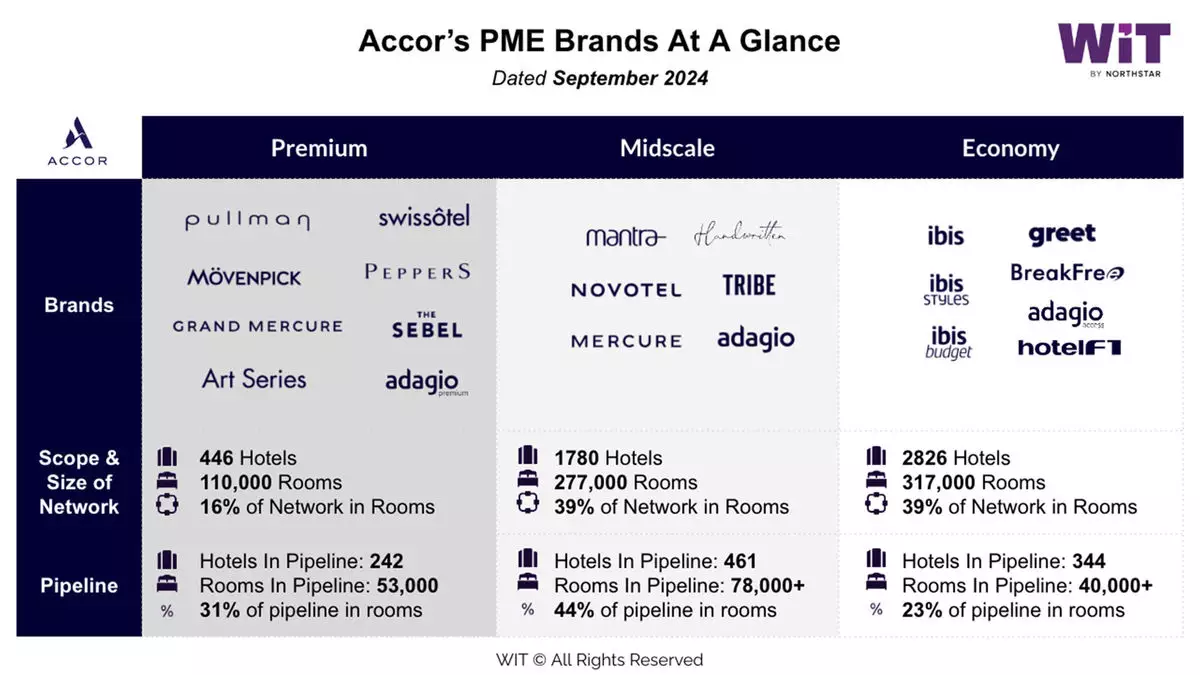In the ever-evolving landscape of travel and hospitality, the emphasis on wellness and sustainability has become paramount. Recent discussions with industry leaders like Benoit Racle and Jean-Yves Minet at the Movenpick BDMS Wellness Resort in Bangkok highlight a significant shift in consumer preferences and expectations. The growing focus on healthy living among travelers signifies a critical transformation in how hospitality brands shape their offerings and engage with guests.
Both Racle and Minet embody the healthy-living ethos that is increasingly prevalent among travelers today. Their choices during our meeting—notably, Racle’s request for decaf coffee and Minet’s preference for sparkling water—reflect a conscious lifestyle that avoids caffeine and alcohol. This trend among modern travelers points to a definitive pivot towards well-being that does not compromise the joy of travel. Racle’s assertion that he abstains from alcohol and caffeine for over a decade showcases a commitment to not just personal health but to a broader movement among consumers prioritizing wellness above traditional indulgences.
The executives pointed toward the changing demographics of travelers, particularly younger generations like Gen Z, who are becoming increasingly conscious of their physical and mental health. Statistician reports indicate a decline in smoking and a growing trend of reduced alcohol consumption among youth, signifying a cultural shift. As travel experiences adapt to these preferences, the hospitality sector must innovate to create environments where health-conscious guests feel at home.
The hospitality industry is now deeply intertwined with the burgeoning consumer wellness market, currently estimated at a staggering $1.8 trillion globally. According to McKinsey & Co., wellness initiatives are no longer considered luxurious add-ons; they have become essential elements of consumer expectations. The current trends reveal that 82% of U.S. consumers view wellness as an essential priority in their lifestyles. This statistic reflects a universal desire for improvement in quality of life—a desire that transcends geographic boundaries and resonates with consumers from various cultures, as observed in both U.K. and China.
For hospitality leaders, this creates a pivotal opportunity to pivot focus towards integrated wellness services. Providing spaces and experiences that promote mental, physical, and emotional well-being is critical for maintaining guest loyalty. Additionally, hotels can diversify their offerings to include wellness activities like yoga, meditation classes, or healthy dining options, effectively catering to the evolving landscape.
Parallel to the wellness revolution is the surge of environmental awareness among consumers, which Racle and Minet emphasized during our discussion. Increasingly, travelers are making purchasing decisions guided by sustainability and corporate responsibility. This trend is not merely confined to developed economies; emerging markets are witnessing a remarkable evolution in consumer consciousness concerning environmental stewardship.
Minet’s experiences in emerging markets, particularly in regions like India, demonstrate a profound appreciation among the middle class for sustainability initiatives. As environmental awareness becomes a decisive factor in consumer behavior, hospitality brands must adapt by implementing greener practices and communicating their sustainability efforts transparently. Initiatives may include eliminating single-use plastics, supporting local communities, and ensuring responsible sourcing of materials in hospitality operations.
As customer preferences for health and environmental consciousness continue to rise, hospitality brands are tasked with reimagining their identity in the eyes of consumers. The challenge lies in balancing traditional hospitality with modern expectations—creating atmospheres that cater to all demographics, without alienating any particular group. The notion that travelers increasingly prioritize wellness indicates that an inviting yet health-oriented ambience is not just desirable but necessary.
With wellness and sustainability firmly planted at the core of consumer priorities, businesses in the hospitality domain must reevaluate their strategies. From brand messaging to service offerings, a comprehensive approach focused on enhancing well-being while protecting the environment is essential. This evolution undoubtedly presents a vast opportunity for innovative solutions that resonate with today’s conscious consumers. By embracing these shifts, the hospitality industry can cultivate lasting relationships with guests who value their health and the planet above all.

